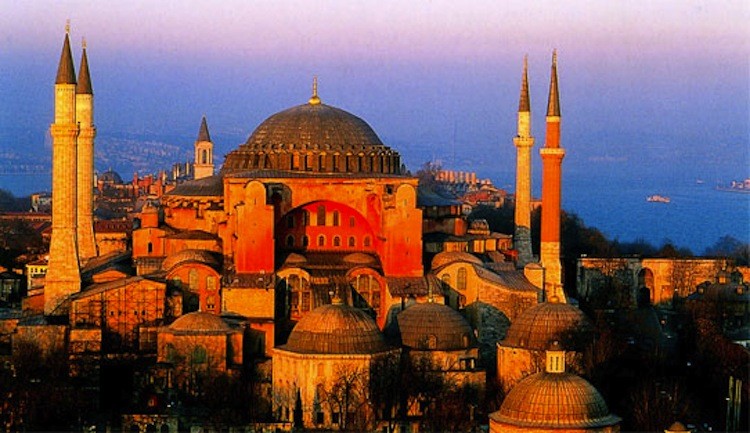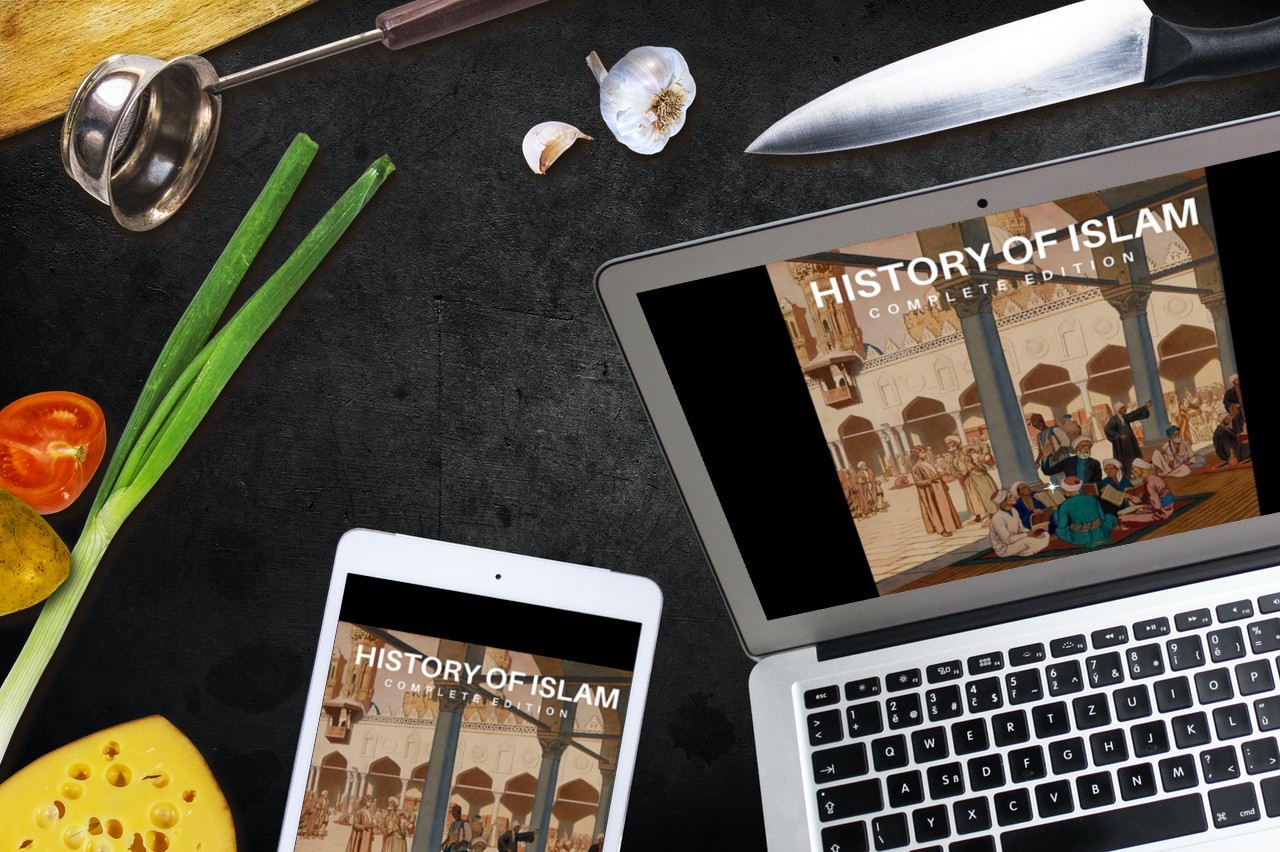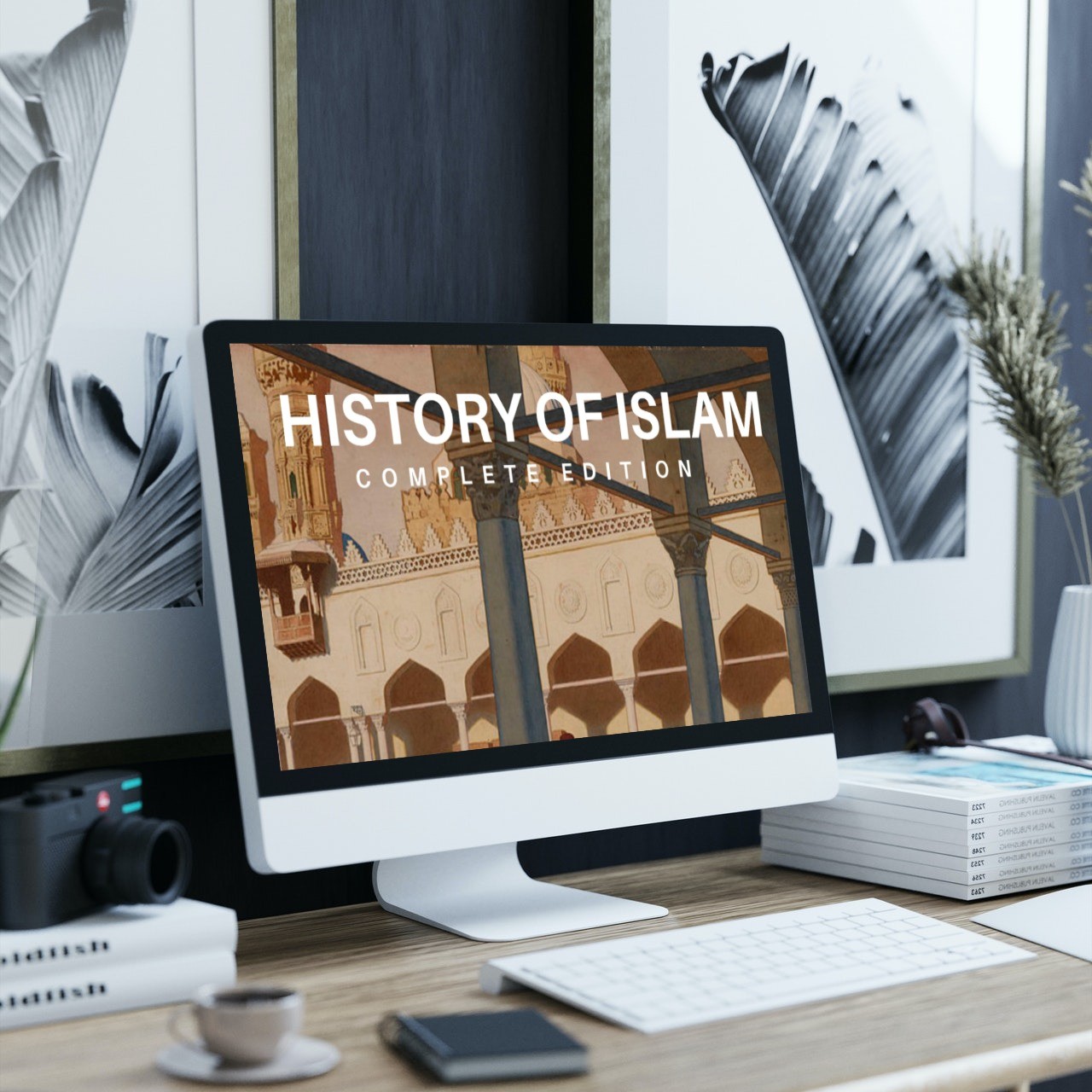Reflections on the Ottoman Empire
In this new video series, I discuss some of the highs and lows of the Ottoman period of Muslim history with my friends. Some of the topics covered in these videos include:
- The rise of the Ottoman Empire
- Contributions of the Ottoman Empire to the world
- The Causes of weakness in the Ottoman Empire
- The multiple causes of the fall of the Ottoman Empire
- World War I and its aftermath
- The modern Muslim world and drafting a way forward together
Watch the full discussion at the links below.
To learn more about Muslim History, sign up for our hit new course: History of Islam, available here.
Finding inner peace through worshipping the Creator
Importance of Ibaadah
Ibaadah is the Arabic term for ritual acts of worship. The term Ibaadah is generally used to refer to acts like Salah, Fasting, Hajj, Umrah, Dhikr and reciting Qur’an. Although, it does carry the broader meaning of any good thing done for the pleasure of Allah. This section will focus primarily on the ritual acts of Ibaadah and their relationship to inner peace.
Doing acts of worship is how we fulfil the primary purpose of life, which is to worship Allah. Allah created us to worship Him and if we do not fulfil the basic requirements of worshipping Allah then we cannot except to experience inner peace.
The general rule is that the closer you are to Allah, the more at peace you are internally. This is proven from the following famous Hadith Al-Qudsi:
On the authority of Abu Huraira who said: The Messenger of Allah (upon whom be Allah’s blessings and peace) said: “Allah the Almighty has said, ‘Whoever displays animosity towards a friend (wali) of Mine, I declare war upon him. My servant does not draw near to Me with anything more beloved to Me than the religious duties that I have obligated upon him; and My servant continues to draw near to Me with additional acts of worship such that I love him. And when I love him, I am his hearing with which he hears, his seeing with which he sees, his hand with which he strikes, and his leg with which he walks. Were he to ask of Me, I would surely give him; and were he to ask Me for refuge, I would surely grant him it.”
Nawawi’s 40 Hadith, Hadith No 38
This hadith should not be misunderstood by taking the second half literally. It means that the closer a person gets to Allah, Allah guides every act of theirs. It does not mean that a person literally becomes one with Allah, as it has been misunderstood by some heretics.
The key message of this Hadith is that the way to get closer to Allah is primarily to fulfil the compulsory acts of worship, and beyond that to do additional acts of worship. These acts of worship bring us closer to Allah, help us to remember Him and in this way lead to inner peace because Allah has told us, “It is only through the remembrance of Allah that hearts find peace,”
Surah Ar-Rad 13:28
This means the more Ibaadah you do daily, the more at peace you are internally. As the primary acts of worship are those which are obligatory, we will focus on those first then on the additional acts of worship.
Importance of Salah
The five daily Salah are the most important acts of worship to establish. This is the second pillar of Islam, our primary link to Allah and our daily reminder of the purpose of life.
Abandoning the five daily Salah is likewise the primary cause of misguidance and leads to Kufr. The Prophet (peace be upon him) said, “The difference between us and them (disbelievers) is Salah, so whoever abandons it has disbelieved,” Many scholars have understood this Hadith to mean that the abandonment of Salah, is itself, an act of Kufr. This is something to reflect on, as it shows the importance of Salah.
It is important to note that when we are talking about the five daily Salah, we are referring primarily to the Fard (obligatory) Rakahs of each Salah, which are:
- Two Rakah every morning before sunrise – Fajr
- Four Rakah every afternoon after the sun begins its decline – Dhuhr
- Four Rakah every mid-afternoon before sunset – Asr
- Three Rakah every evening after sunset – Maghrib
- Four Rakah every night after total darkness sets in – Esha
These are the obligatory Salah and our priority should be getting them in order. As for the additional prayers like two before Fajr, and two after Dhuhr, Maghrib or Esha, these are all optional and recommended. The priority should be on that which is obligatory and once that is in order, we should add to it these recommended Salahs.
The purpose of Salah is mentioned in two verses of the Qur’an and both objectives are linked to the development of Inner Peace. Allah says, “Establish Salah to remember me,” (Surah Taha 20:24) and “And Establish the Salah! Definitely, Salah prevents immorality and sin, and the remembrance of Allah is greatest,” (Surah Al-Ankaboot 29:45)
Between these two verses, we can say that the primary purpose of Salah is to remind us of Allah and our duties towards Him five times every day. The result of that is that we will be protected from immorality and sin through the remembrance of Allah, which is why Allah refers to the remembrance of Allah as the greatest goal of Salah.
However, this goal can only be accomplished if we pray with concentration, sincerity and understanding. It is in this area that many of us have failed. For many Muslims today, Salah has been reduced to a ritual of movements and words which they do not understand or even care to understand. As a result, it has no impact on their hearts and lives and they do not experience the benefits of Salah.
In order to attain inner peace, Salah must be prayed with understanding, reflection, sincerity and concentration. Sincerity is the first obligation. We must pray Salah solely for the pleasure of Allah, not to please people or “just to get it over with”. Salah must be done consciously as a means of getting closer to the Creator.
After sincerity, the next condition is understanding. The best way to understand what we are reciting is to learn Arabic, yet for many Muslims this is difficult and unlikely. The next best step then is to at least learn the translation and explanation of what you recite in your Salah.
Understanding Surah Al-Fatiha
Let’s look at the example of Surah Al-Fatiha as it is a key component of our Salah, and understanding it is crucial to benefitting from our Salah.
Allah chose Surah Al-Fatiha (the opening chapter) to be the first chapter in the Qur’an and the first chapter we recite in each unit of prayer so it is very important that we understand the meanings of this Surah. I have separately written a 100 page Tafseer of this Surah, but for the readers of this book I would like to present a brief summary.
Surah Al-Fatiha revolves around a dua for guidance and can be divided into two parts. The first half of the Surah describes Allah and our relationship to Him, and the second half of the Surah is the actual dua whose wordings contain clues to what is the correct path to follow.
The Surah begins with Alhamdulillah (All praise is for Allah), a beautiful statement of gratitude to remind us that Allah is the One who blessed us with all the good things we have in our lives. This is followed by five important descriptions of our Creator, He is Allah (The Only God), Rabb Al-Aalameen (Controller of the Universe), Ar-Rahman (Merciful to All creation), Ar-Raheem (Especially Merciful to the believers) and Maalik Yawm Ad-Deen (Master/King of the Last Day).
These five names summarize who Allah is to us. He is our Creator, Sustainer, Provider, sole object of worship, and The One we will have to answer to on the Last Day. This understanding of who Allah is creates a balanced approach between hope in His Mercy and accountability for our deeds and choices, and helps us understand why we should worship Allah alone.
The fourth verse lays down our relationship with Allah i.e. You Alone we worship, and You Alone we ask for help. This means that all forms of worship in our lives are done only to and for Allah, and we do not pray to anybody except Allah, or seek divine assistance from anyone or anything besides Him.
After affirming our belief in and worship of Allah, we then make dua for Guidance to the straight path, which Allah describes as the path of those whom He has favored. In another verse, Allah describes those whom He has favored as “The prophets, the truthful, the martyrs and the righteous” so in this we have a clue of where to seek the straight path. By studying the lives and beliefs of the prophets and righteous predecessors we learn the correct understanding of Islam.
The Surah closes off with two signs of the wrong paths, those whom have earned Allah’s anger and those who have gone astray. The first group are described as people who know the truth yet consciously reject it, due to arrogance, blind following or some other reason, while the second group are those who blindly follow a wrong path without thinking for themselves, so they remain convinced that they are on the straight path.
In this we have an important lesson, blind following and arrogance are obstacles on the path towards the truth. If we wish to find the truth, we need to abandon blindly following our forefathers and let go of our own egos, and ask Allah to show us the straight path.
In summary, if you are confused about any issue of faith, there is no dua more powerful to make in such situations, than Surah Al-Fatiha. Learn it and recite it with all your heart in every Rakah of Salah.
Besides understanding Surah Al-Fatiha, it is important to learn the translation and explanations of anything else you recite in Salah.
Salah with Concentration
Besides understanding, we also must pray Salah with concentration. Salah is in many ways an exercise in focus, concentration and developing inner peace. Allah has described the true believers as, “Those who pray their Salah with Khushoo (concentration and inner peace),” (Surah Al-Muminoon 23:2) as well as, “Those who guard their Salah” (Surah Al-Muminoon 23:9) by not missing a prayer on time.
Sincerity and understanding help us to concentrate in our Salah. Beyond that, it is a matter of self-discipline. Focus on being in the moment, do not think about what you are going to do after Salah, or where your keys are. Focus on Allah and developing a relationship with Him. This is your best training in developing inner peace. If you can experience inner peace during Salah, then you are on your way to righteousness.
The most important position in the Salah is the Sajdah. Many people look at the Sajdah as just another ritual aspect of the Salah, but in reality it is the ultimate sign of submission to the Creator of the Heavens and earth. The Sajdah is so important that we have two Sajdahs in every Rakah of Salah.
The Prophet (peace be upon him) said, “The closest that a servant gets to Allah is during his Sajdah,” This means that our Sajdah is the time when we are closest to Allah and our duas are most likely to be accepted.
The Sajdah is supposed to be a time in which we make dua and pour our hearts out to Allah asking for His Assistance and Forgiveness in every aspect of our lives. I am of the opinion that the dua in Sajdah can be in any language as Allah hears and understands all languages and would not make this crucial moment of acceptance only for those who speak Arabic.
Following these steps will help transform our Salah into a beautiful experience which benefits us, brings us closer to Allah and a means through which we experience inner peace.
Once you have established the obligatory Salah as a regular part of your life, then build upon it by adding more Salah to your daily habits. Start with the two Rakah before Fajr and the Witr after Esha. These are recommended Salahs that the Prophet (peace be upon him) never missed.
Then add the other recommended prayers to your habits like the two after Dhuhr, Maghrib and Esha, and the Tahajjud (late night prayer).
Qiyam Al-Layl – The Night Prayer
From all the extra Salah that one can pray, the Tahajjud is the most important in developing inner peace. The Tahajjud Salah is also known as the Qiyam Al-layl (Standing at night) Salah as it is usually done by standing in prayer late at night. Some scholars give the term Qiyam Al-Layl a broader definition to include any acts of worship done late at night.
A lot of importance has been attached to the Qiyam Al-Layl in the Qur’an and Hadith. It is considered the most blessed time of the day to worship Allah, as it is the last one third of the night when most people are deep in sleep. At such a time, only those closest to Allah are awake and engaged in worshipping Him.
For someone to wake up from their sleep at that time of the night solely to worship Allah and remember Him is a sign of sincerity. It is reported that during the last third of the night, Allah descends (in a way that suits His Majesty) to the lowest Heaven and answers the duas of all of those asking of Him and accepts the repentance of all those repenting to Him.
There is a special peace in the air at this time of the night, and those who wake up to worship Allah during this period experience it. If you are searching for peace, praying and doing other acts of worship during the last third of the night is an amazing experience and we should strive to make it part of our daily routine.
Quran and Reflection
The Qur’an is the word of Allah and our direct connection with Him. The Quran is part of the last revelation sent by God/Allah to mankind through his final prophet Muhammad (peace be upon him) 1400 years ago. Previously, Allah would send different scriptures to different nations, but with the prophet Muhammad (peace be upon him) being the final messenger to all of mankind, a final revelation was sent.
The revelation sent to the prophet Muhammad (peace be upon him) was of two types, the Quran and the Sunnah, with the key differences between the two being that the Quran is God’s word while the Sunnah (or Hadith) are the prophet’s words, and the Quran is a miracle in of itself and proof of the truth of Islam.
As Muslims, we all accept and believe that the Quran is the final revelation, God’s word and a miracle thus we should make extra effort to understand and practice the teachings it contains. As the Quran itself testifies that we were created in this world as a test, to see who will follow and submit to Allah and who will not, and we know as Muslims, that whatever Allah has revealed and chosen for us is best for us so we will eagerly read it, understand it and follow it with all our hearts.
However, even though this is what Islam teaches and Muslims are supposed to do, we find that today in many homes, the Quran is rarely read, even rarer is it understood and sadly we find many of us don’t follow it. The prophet (peace be upon him) warned us about this as a sign of the Last Day. He said that knowledge will disappear and when the companions asked how that can happen when they recite the Quran, he replied that just like followers of some other religions read their books without understanding, many Muslims will do so too.
Allah also prophesized this in the Quran when He warns us of a statement the prophet will make on the Last Day. Allah says, “The prophet will say, ‘Oh my Lord, indeed my people have deserted this Quran,” (Surah Furqaan 25:30) We need to ask ourselves, are we from those who the prophet is sadden that we deserted the Quran or are we from those who the prophet will be proud of as his followers on the Last Day.
Thus understanding the Qur’an is crucial for understanding Islam as Allah has said at the very beginning of the Qur’an, “This is the book about which there is no doubt, it is a guidance for those who are God-Conscious,” (Surah Baqara 2:2)
We need to establish a connection with the word of Allah. It was the habit of the Sahaba and early Muslims to recite the Qur’an as much as they could on a daily basis. Their recitations were such that they understood what they were reciting and would reflect on it.
We too, in order to connect with Allah and benefit from His message, need to make it a habit to recite the Qur’an on a daily basis with understanding and reflection.
The best way to understand the Qur’an would be to learn Arabic and Tafseer. Most Muslims are unable to do this, so at the very least, we should read the translation of the Qur’an and attend Tafseer classes.
Set a time every day, a time when you feel you need the Qur’an most, to recite the Arabic, read the translation and reflect on its meanings.
If there are any Tafseer classes in your area, you should attend them regularly. If not, download a Tafseer lecture series from a reputable website and follow it closely. Studying Tafseer under a qualified teacher is important to help us understand the deeper meanings and more complex issues in the Qur’an.
Making Time
Many people complain that they don’t have time to do these extra acts of worship. We tell ourselves that our lives are too busy to make time for reciting Qur’an or even praying on time.
Simply put, if something is important to you, you will make time for it. A lack of time is self-delusion and simply an excuse to avoid worshipping Allah. In doing so, we only harm our own selves. Allah is not in need of worship, rather we need to worship Him in order to experience inner peace, contentment and true happiness.
By ignoring Him, and refusing to worship Him, we only deny ourselves all the benefits of being close to Allah, and we only deprive ourselves of His blessings.
We make time for all the important people in our lives, isn’t our relationship with Allah more important than any of these? We really need to think about what is important in our lives and reorganize our schedules accordingly.
If you think about it, most of these acts of worship take no more than a few minutes, some even take just a few seconds. How long would it take you to say “Alhamdulillah” when something good happens? How long would it take to recite and reflect on the Qur’an every day? How long would it take to pray two Rakah of Fajr Salah every morning?
The only way to gain inner peace is to make Allah a priority in our lives, and to change our habits by building such habits that connect us with Allah.
When you plan your day, plan it around the five daily Salah and schedule in time for reciting Qur’an and for studying Islam. Make these things a priority, just like we make our families a priority in our lives.
If you utilize To-Do Lists, then adding these acts of worship to your To-Do list is a good way to discipline yourself to make time for it, as we tend to regard the tasks on our To-Do List as most important in our day.
Are you strapped for time and struggling to make time for the above. Learn how to manage your time, set your goals, and build your confidence the Islamic way with our Self-Help Mega Bundle. The Mega Bundle includes 10 ebooks and multiple templates all designed to help you maximize your productivity the Islamic way. Learn more here: https://islamicselfhelp.gumroad.com/l/selfhelpbundle
Introduction to Muslim History
A deep dive into Muslim history unlike anything you ever witnessed before!
Finally, a course that covers the entire history of the Muslim world in 30 amazing videos.
Join us on a life-changing journey across the great empires of old.
Explore the world of the Umayyads, Abbasids, Ottomans and more with in in-depth video series that covers the history of Islam in a comprehensive and engaging manner.
In this course, Shaykh Ismail Kamdar will take you on a journey through the past 1400 years, starting with the life of the Prophet Muhammad (peace be upon him), through the eras of the Rightly Guided Caliphs, the Umayyads, Abbasids, Ayyubis, Mamluks, Ottomans, all the way into the 21st Century.
Experience the Highs and Lows of Muslim History in this deep intensive course, that is the result of over a year of research and preparation.
Learn more about the online course here: https://islamicselfhelp.gumroad.com/l/history1
New Course Launched: History of Islam
Access the full course today and gain access to all 30 videos (on-demand streaming) and 15 downloadable PowerPoint presentations.






